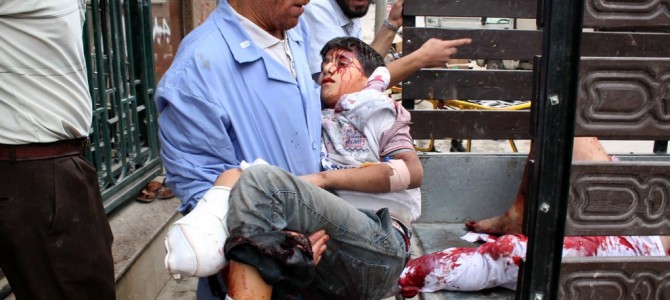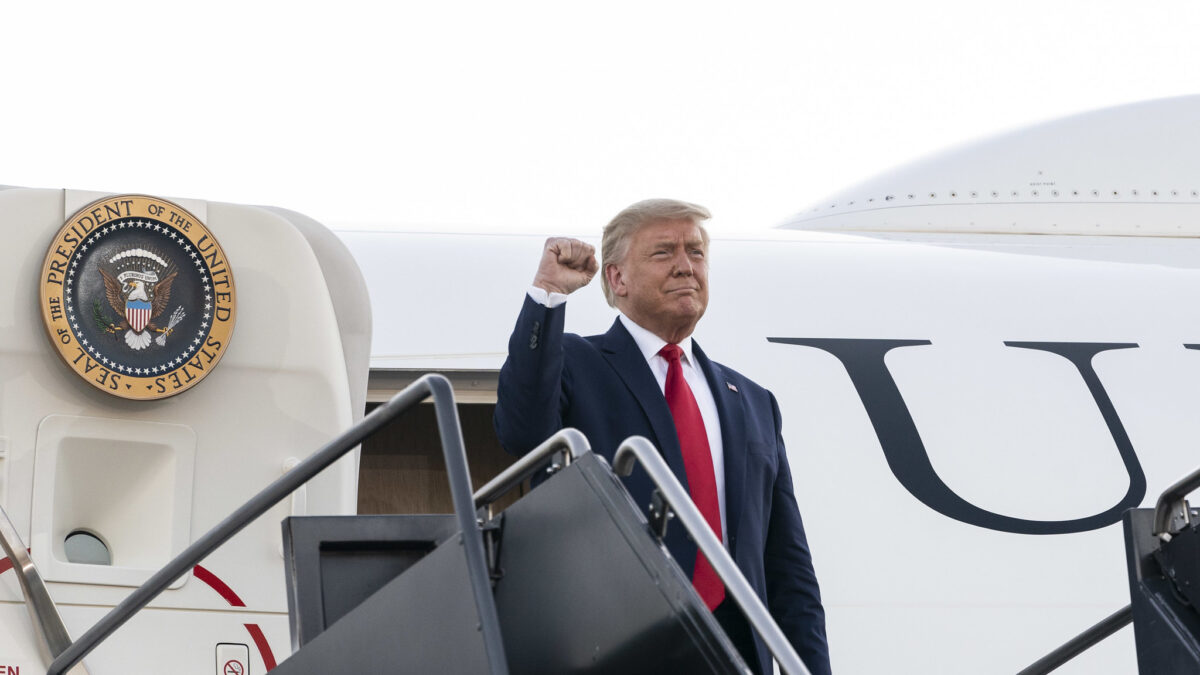
In announcing recent U.S. airstrikes against militants from the Islamic State of Iraq and al-Sham (ISIS), Secretary of State John Kerry said ISIS’ campaign in Iraq shows “all the warning signs of genocide.” Is Kerry correct on the law? And if he is, what should the United States be doing to stop an impending genocide?
The Genocide Convention
The United Nations Convention on the Prevention and Punishment of Genocide, which entered into force in 1951, is a landmark in the development of international human rights law. Although the United States was surprisingly late in ratifying the Convention (it did not do so until 1988), the treaty is now binding on the United States under international law. Moreover, later judicial decisions, including a 2007 decision by the International Court of Justice (ICJ) in Case concerning the Application of the Convention on the Prevention and Punishment of the Crime of Genocide, have elucidated the nature and scope of a state’s duty to prevent a genocide from occurring. In that opinion, the court wrote:
a State’s obligation to prevent, and the corresponding duty to act, arise at the instant that the State learns of, or should normally have learned of, the existence of a serious risk that genocide will be committed. From that moment onwards, if the State has available to it means likely to have a deterrent effect on those suspected of preparing genocide, or reasonably suspected of harbouring specific intent . . ., it is under a duty to make such use of these means as the circumstances permit.
Thus, if there is a “serious risk” ISIS will commit genocide in Iraq, and the United States has learned of that risk, then the United States is “under a duty” to use the means available to it to deter that genocide, insofar as “circumstances permit.” Given Kerry’s statement, it is safe to assume the United States has learned of the risk of genocide ISIS’ conduct poses and considers that risk “serious.” And given further that the United States is already conducting some military strikes against ISIS in Iraq, as well as undertaking activities of a more strictly humanitarian kind to relieve Iraqi groups ISIS has targeted, it would seem to follow that—unless “circumstances” disallow it—the United States has a legal obligation to prevent ISIS from committing genocide.
Defining ‘Genocide’
But not every form of mass killing is “genocide.” The Convention’s definition of “genocide” is technical and narrow. The key clause of the Convention explains that “genocide” means any of a certain class of acts “committed with intent to destroy, in whole or in part, a national, ethnical, racial or religious group, as such.” The “acts” in question include “killing members of the group; causing serious bodily or mental harm to members of the group; [and] deliberately inflicting on the group conditions of life calculated to bring about its physical destruction in whole or in part.” Thus, as a matter of its legal definition, “genocide” includes two main components: first, a specific kind of intention; second, the commission of one or more of certain designated acts. Establishing that the first of these two conditions has been met can be very difficult. Thus, a committee of international legal experts the UN appointed concluded in 2005 that the Convention’s tests had not been met in the case of Darfur, finding that “the crucial element of genocidal intent appears to be missing, at least as far as the central Government authorities are concerned.” (See “Report of the International Commission of Inquiry on Darfur.”)
Based on the evidence being reported from Iraq, it certainly looks as if ISIS is committing, or is poised to commit, genocide in the strict, legal sense. It has been killing large numbers of Iraqis, apparently with the specific intent to destroy those groups in whole or in part, because of the Shi’ite, Christian, or other religious character of those groups. To be sure, the existing evidence (so far as I am aware) might well not be sufficient to convict ISIS or its agents of the crime of genocide in a court of law. Nonetheless, the evidence that is presently available seems sufficient to trigger the duty of prevention of which the ICJ wrote.
Non-State Actors and Genocide
There is, however, a further legal question Kerry did not address. ISIS is not a state, though it seems to have some of the attributes of statehood. (It controls some Iraqi territory, rules over a population, administers a kind of justice, and so on.) Moreover, ISIS seems to have disclaimed the intention of becoming a state, seeking instead to unite the Moslem umma throughout the world under a restored caliphate. (Thus, ISIS is a threat to the current, “Westphalian” global legal order, which is centered on the existence of states, not other forms of political organization.) Does the Genocide Convention only apply to actions done by states or by those acting on behalf of, or under the authority of, states? In other words, if ISIS is a non-state actor, can ISIS or its agents commit “genocide”?
This question has been the subject of some debate among legal scholars. One careful scholar has argued, however, that the rebel Rwandan Patriotic Front, which was a non-state actor, could properly be held liable for genocide within the understanding of the Convention. Assuming that that position is correct, then Kerry does seem correct, in legal terms, in his assessment of the situation in Iraq.
That leaves the question of what the United States is legally obligated to do to reduce the risk of a genocide in Iraq. And it must be acknowledged that the scope of that legal obligation is not well-established. Nonetheless, it seems that if the United States can take reasonable measures to rescue likely victims of an ISIS genocide from that fate, without incurring excessive losses to U.S. military personnel, then our government is bound, not just morally but also legally, to do exactly that. And to some extent, the United States, to its credit, is discharging that duty with regard, e.g., to such groups as the Yazidis, a religious minority threatened by ISIS’ exterminationist impulses. Likewise, also commendably, the United States is protecting Iraqi Shi’ites, another religious group towards which ISIS is exhibiting genocidal intentions.
The United States Overlooks Iraq’s Christians
Where the Obama administration is falling short, however, is in its efforts to rescue Iraq’s Christian minority from the genocidal threat that ISIS poses. Mark Movsesian of St. John’s Law School, who has been tireless in his efforts to call attention to the United States’ neglect of Iraqi Christians, has an excellent new post in the Center for Law & Religion Forum on this issue.
There is simply no justification for the Obama administration’s selective policy. When it comes to protecting human beings from genocide, it would be shocking and outrageous for the United States to play favorites. The suffering and deaths of Iraq’s Christians deserve our solicitude as much as the sufferings and deaths of Iraq’s Shi’ites, Yazidis, and others. At a minimum, we should be making strenuous efforts to hasten the admission of Iraq’s religious refugees, including its Christians, into our country. Britain’s Rabbi Jonathan Sachs has rightly compared the suffering of Middle East Christians with Jewish pogroms in Europe and reminded everyone of the words of Martin Luther King: “In the End, we will remember not the words of our enemies, but the silence of our friends.”









